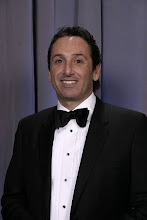Wednesday, August 26, 2009
Model Outs Blogger
Rosemary Port, who was then outed, sued Google -- which operates the blog, "Skanks in NYC" -- for failing to protect her right to privacy.
“Vogue model Liskula Cohen wins right to unmask offensive blogger,” Times, August 19, 2009, at http://www.timesonline.co.uk/tol/news/world/us_and_americas/article6801213.ece;
“Google lawsuit dispels the Web’s oldest tradition: anonymity,” Christian Science Monitor, August 20, 2009, at http://features.csmonitor.com/innovation/2009/08/20/google-lawsuit-dispels-the-webs-oldest-tradition-anonymity/; “Unmasked Google blogger to sue over privacy breach,” Times, August 24, 2009, at http://timesonline.typepad.com/law/2009/08/unmasked-google-blogger-to-sue-over-privacy-breach.html; “Model Liksula Cohen still not getting apology from blogger Rosemary Port,” New York Daily News, August 26, 2009, at http://www.nydailynews.com/gossip/2009/08/26/2009-08-26_model_liksula_cohen_still_not_getting_apology_from_blogger_rosemary_port.html;
“Stung by the Perfect Sting, New York Times, August 25, 2009, at http://www.nytimes.com/2009/08/26/opinion/26dowd.html?ref=opinion.
Monday, August 17, 2009
Charges brought in largest hacking and identity theft case
Three men were indicted on federal charges in the largest computer hacking and identity theft case ever charged in the U.S. The defendants allegedly hacked into computer networks of major U.S. retail and financial organizations -- using a standard (and preventable) SQL injection attack that exploits a database when user input is not properly filtered -- and stole data related to more than 130 million credit and debit cards.
Albert Gonzalez, of Miami, along with two unnamed Russians, stands accused of hacking into Heartland Payment Systems, 7-Eleven, and Hannaford Bros. The stolen data was sent to computer servers that Gonzalez and his co-conspirators operated in California, Illinois, Latvia, the Netherlands, and Ukraine.
The hackers were also allegedly involved in the cracking of a Citibank-branded ATM network lcoated in 7-Eleven stores. The group penetrated a network linking 2,200 ATMs (by breaching a back-end system that had been outsourced by 7-Eleven) and stole card and PIN codes, using them to steal about $2 million in cash from Citibank ATMs. They also compromised prepaid iWire cards and withdrew about $5 million, which was sent to Russia.
Gonzalez is currently awaiting trial on charges that he and others allegedly also stole more than 40 million credit-card numbers from TJX and others, costing TJX $200 million.
According to the Justice Department, Gonzalez had been arrested in 2003, but not charged because he agreed to become an informant for the Secret Service.
See, "Three Indicted in Major Hacking Case," Wall St. Journal, August 17, 2009, at http://online.wsj.com/article/SB125053669921337753.html; "U.S. Indicts 3 in Theft of 130 Million Bank Cards," New York Times, August 17, 2009, at http://www.nytimes.com/2009/08/18/technology/18card.html; "Arrest in Epic Cyber Swindle," Wall St. Journal, August 18, 2009, at http://online.wsj.com/article/SB125053669921337753.html; "Hacker Indictments Highlight Application Security," InformationWeek, August 18, 2009, at http://www.informationweek.com/blog/main/archives/2009/08/hacker_indictme.html;jsessionid=2IV31GYNRMD3RQE1GHOSKHWATMY32JVN; "Cyber-thieves linked to Citibank ATM breach," Financial Times, August 24, 2009, at http://www.ft.com/cms/s/0/0e964e10-9046-11de-bc59-00144feabdc0.html.
Saturday, August 1, 2009
Most damaging hacker to be extradited to the US
A UK court has approved the extradition to the US of Gary McKinnon, who admits hacking into 97 computers belonging to the US Defence Department, Navy, Army, Air Force and after September 11, 2001. McKinnon is claimed to be most prolific and damaging computer hacker in US military history. One message he allegedly left on a Pentagon computer stated, “U.S. foreign policy is akin to government-sponsored terrorism. I will continue to disrupt at the highest possible level.”
McKinnon and family say his actions were influenced by Asperger’s syndrome, a form of autism. McKinnon, admitting the charges, says that rather than harming the United States, his goal was to expose evidence that "secretive parts of the American government intelligence agencies did have access to crashed extra terrestrial technology which could… save us as a form of free, clean, pollution-free energy." But prosecutors seeking his extradition have said his actions were not benign and the diagnosis was made long after the computer hacking occurred and the case against him was under way.
See, "Hacker’s Extradition to U.S. More Likely," New York Times, July 31, 2009, at http://www.nytimes.com/2009/08/01/world/europe/01britain.html?ref=todayspaper; "Autistic Genius Hacked Military Computers in Search of Alien Eco Tech," CBS News, July 31, 2009, at http://www.cbsnews.com/blogs/2009/07/31/crimesider/entry5202308.shtml; "New legal blow for hacker fighting extradition to US," Independent, August 1, 2009, at http://www.independent.co.uk/news/uk/crime/new-legal-blow-for-hacker-fighting-extradition-to-us-1765884.html ;http://freegary.org.uk/.

